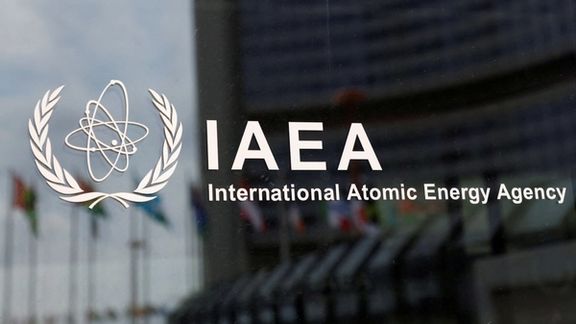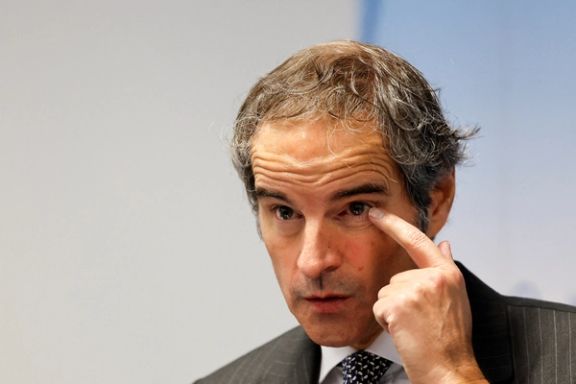Iran Not Fulfilling Nuclear Commitments, Says IAEA Chief

The head of the UN nuclear watchdog says Iran is not fulfilling many aspects of its commitments under the 2015 nuclear deal and the March agreement.

The head of the UN nuclear watchdog says Iran is not fulfilling many aspects of its commitments under the 2015 nuclear deal and the March agreement.
In a press briefing on the sidelines of the International Atomic Energy Agency's Board of Governors session, Director-General Rafael Grossi told Iran International that "Iran has ceased to implement lots of aspects and nuclear related obligations under the JCPOA (the Joint Comprehensive Plan of Action) and it's not implementing mutually agreed additional measures under the joint statement of March 4th.”
On Wednesday, Grossi presented his latest report on verification and monitoring in the Islamic Republic of Iran in light of United Nations Security Council Resolution 2231 (2015), saying that “Iran’s stockpiles of uranium enriched up to 5%, enriched up to 20% and enriched up to 60% – high enriched uranium – have all increased since we met in September with the increase of the 60% continuing at the same rate as I reported at the time of the last Board."
The European Union’s representative told the IAEA Board of Governors that “the EU remains committed to the JCPOA... to ensure that Iran does not acquire a nuclear weapon.” The bloc also implicitly called on the US to return, saying, “The EU calls on all countries to support the implementation of the United Nations Security Council Resolution 2231 (2015)," the UN document that is the foundation of the JCPOA.
Expressing deep concerns by the successive IAEA reports documenting the alarming acceleration of Iran’s nuclear program “that gravely departs from its JCPOA commitments," the EU said that Iran’s actions have “no credible civilian justification” and “carry very significant proliferation-related risks and raise grave concerns about Iran’s intentions.”

The recent IAEA report documented a substantial accumulation of the enriched uranium stockpile and an expansion of nuclear enrichment infrastructure “far beyond JCPOA thresholds for quantity and level of enrichment.”
In June 2022, Iran removed all IAEA JCPOA-related surveillance and monitoring equipment and since March it agreed to put them back on operation, but it has been stonewalling the process ever since. Additionally, Tehran withdrew the designation of several inspectors assigned to conduct verification activities in Iran under the Non-Proliferation Treaty Safeguards Agreement a few days after securing a prisoner swap with the US that included unfreezing of about $6 billion of its oil revenues blocked in South Korea.
Tehran's move, which the IAEA called "disproportionate and unprecedented", was in response to a call by the United States, France, Britain and Germany at another round of IAEA Board of Governors to give credible explanations on the uranium particles and let the IAEA install more surveillance cameras. So far, the IAEA has had no progress in getting Iran to reverse its so-called "de-designation" in September of the IAEA inspectors. The move effectively barred some inspectors, who diplomats said were from France and Germany and the IAEA said were among its most experienced experts, from working in Iran.
After the US withdrawal from the JCPOA and reimposition of sanctions in 2018, Iran has accelerated its enrichment pace and stockpiling load, using them as bargaining chips to get concessions from the West. Iran did not agree to a compromise plan proposed by the European Union in 2022 to revive the agreement, despite the Biden administration’s stated goal of finding a diplomatic solution.Washington has informally relaxed sanctions on Iran’s oil exports and allowed blocked funds in Iraq and South Korea to be released, but Tehran has shown no willingness to resolve the nuclear issue.
When it comes to nuclear commitments, Iran does not abide by rules but when a sunset clause of the same 2015 accord comes, Iran is there to reap the harvest. In October, the United Nations’ checks and balances on Iran’s missile program expired, enabling a newly emboldened Iran to legally supply Russia with arms for the invasion of Ukraine as its global reign of terror continues even less abated.